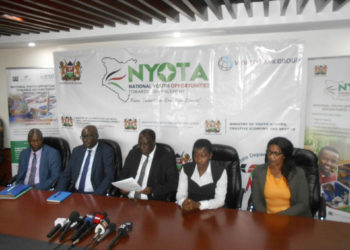Huawei Technologies has pledged to bolster Kenya’s digital development by accelerating the expansion of its connectivity infrastructure.
Leo Chen, President of Huawei Sub-Saharan Africa, outlined a vision for an advanced, inclusive, and future-ready infrastructure aimed at driving Kenya’s digital evolution.
Read more: Afreximbank and ARISE IIP tackle food insecurity with new initiative
This commitment follows the agreement between the Kenyan government and Huawei Technologies to collaborate on the country’s ICT infrastructure development, with a focus on digitizing various sectors, including transportation, e-government, education, and digital energy.
Highlighting the global forces of digitalization and decarbonization, Chen emphasized the impending surge in connected entities, such as people, devices, and applications, necessitating a robust and secure network foundation. Underscoring the crucial role of cutting-edge connectivity technologies like 4G and 5G in Kenya’s efforts to digitize government services and public records through the E-Citizen Platform.
Chen acknowledged Kenya’s ongoing efforts to lay 100,000 kilometers of fiber-optic internet cables across the nation and emphasized the need for future-proof connectivity solutions to accommodate evolving application scenarios. Notably, he focused on inclusivity in connectivity, particularly in remote areas and for differently-abled individuals, highlighting Huawei’s Rural Star solution as a wireless broadband coverage mechanism to bridge the digital divide and foster inclusive development.
Additionally, highlighting the significance of establishing national cloud data centers, referred to as ‘e-Government Clouds,’ to provide computing resources to government entities, the public, and small and medium-sized enterprises (SMEs). These cloud centers are expected to streamline operations and enhance service delivery.
Read more: Kenchic receives IPC accolade for environmental commitment in chicken production
Beyond the advancement of digitalization, Chen emphasized the role of Information and Communication Technology (ICT) in steering decarbonization efforts across Africa. Asserting that the ICT industry has the potential to reduce global carbon emissions by 20 percent, surpassing its own emissions tenfold while optimizing digital energy production.
Email your news TIPS to editor@thesharpdaily.com


















